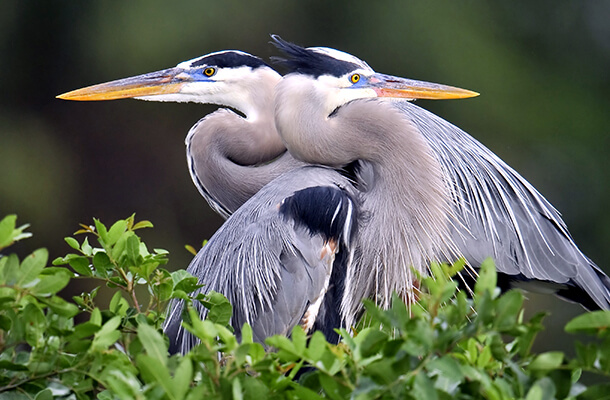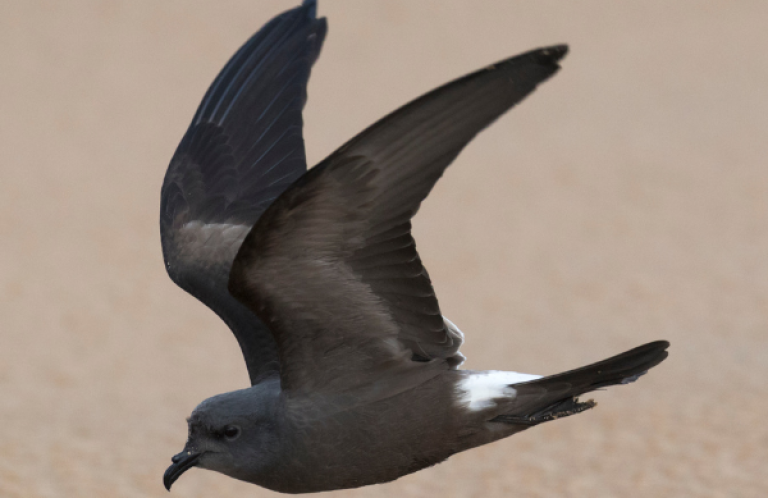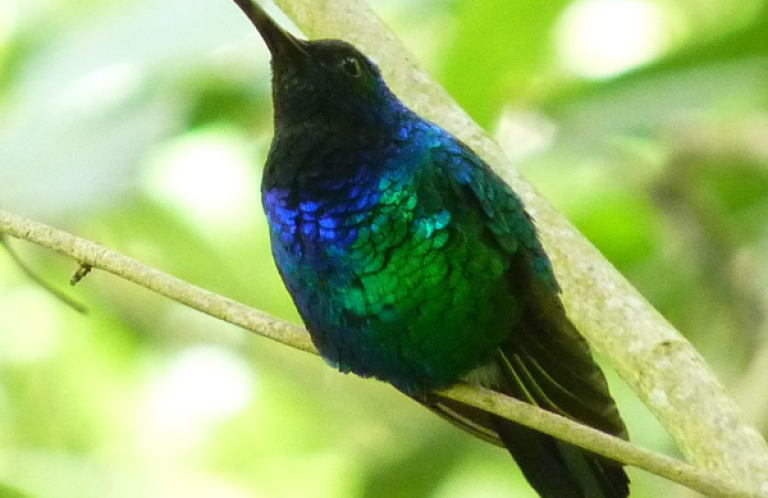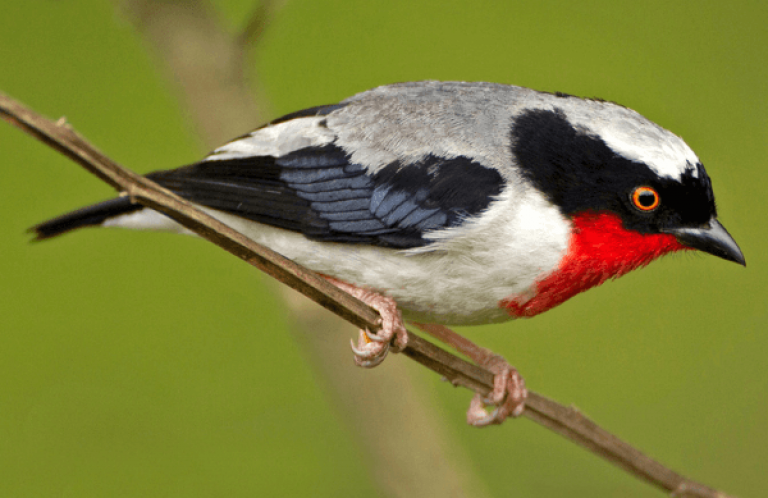100th Anniversary of Migratory Bird Treaty Act Marks Major Conservation Success
Contact: Steve Holmer (sholmer@abcbirds.org), Vice President of Policy, American Bird Conservancy, 202-888-7490
(Washington, D.C., June 27, 2018) Nearly 100 years ago, on July 3, 1918, the United States enacted the Migratory Bird Treaty Act (MBTA) to protect migratory birds. Passed in the nick of time, the Act helped restore populations of many birds, ranging from herons and egrets to shorebirds and waterfowl. The original Act was a means of implementing a 1916 treaty between the U.S. and Canada intended to ensure the preservation of migratory bird species.

Passed in the nick of time, the Act has helped restore populations of birds from herons and egrets to shorebirds and waterfowl. Photo of Great Blue Heron by FloridaStock/Shutterstock
“The Migratory Bird Treaty Act has been a remarkable success,” said Mike Parr, President of American Bird Conservancy. “The Act's authors responded to migratory bird declines by focusing on the threats of the early 20th century, and they would have been proud to see how the Act has been used to protect birds from modern threats.
“By keeping the Migratory Bird Treaty Act strong, we can build on that conservation success. We can avoid preventable deaths caused by human influences such as industrial development and misuse of pesticides — and ensure that future generations of Americans enjoy the same wondrous spectacle of migratory birds we do today.”
At 100, Successful Law is Under Attack
In a legal opinion issued December 2017, the Administration abruptly reversed decades of government policy and practice — by both Democratic and Republican administrations — on the implementation and enforcement of the MBTA. The Act's prohibition on the killing or "taking" of migratory birds has long been understood to extend to “incidental take” — meaning unintentional, but predictable and avoidable, killing from threats such as oil pits that trap birds, and tall towers and power lines responsible for many bird collisions. Under the Administration's revised interpretation, the MBTA's protections will apply only to activities that purposefully kill birds. Any incidental take — no matter how inevitable, avoidable, or devastating its impact on birds — is now immune from enforcement under the law.
A coalition of national environmental groups, including American Bird Conservancy, Center for Biological Diversity, Defenders of Wildlife, National Audubon Society, National Wildlife Federation, and the Natural Resources Defense Council, has filed litigation, challenging the Administration's move to eliminate these longstanding protections.
Opposition against the weakening of the Act is also mounting in Congress. Democrats on the House Committee on Natural Resources are holding a roundtable discussion today to discuss potential next steps to counter the Administration and to discuss the benefits of creating an incidental take permitting system.
In addition, all 10 Democratic members of the Senate's Committee on Environment and Public Works sent a letter to Interior Secretary Ryan Zinke, calling on him to keep enforcing the MBTA, cited as the country's most important bird conservation law.
“We strongly urge you to reconsider this opinion and to cease any corresponding efforts to change agency rules or guidance under the MBTA,” the Senators wrote in their letter to Sec. Zinke. “Instead, we ask that you continue to enforce this foundational bird conservation law as every administration from across the political spectrum has done for more than 40 years.”
In their letter, the Senators call attention to the 100-year history of the MBTA and why it remains essential. “For the 1,000 species of birds protected by the MBTA, the menace of market hunting and the plume trade have since disappeared, but the threats to birds have not,” they wrote. “The rapid industrialization of the country in the 20th century created new threats, as millions of waterfowl, raptors, and songbirds began to die tragic deaths after being trapped in oil pits, electrocuted on power lines, and more.”
ABC and a coalition of more than 500 conservation groups have called on Congress to defend the Act. And, in a remarkable show of support for keeping the MBTA strong, 17 high-ranking officials from previous Republican and Democratic administrations sent a letter to Sec. Zinke opposing the change. "This legal opinion is contrary to the long-standing interpretation by every administration (Republican and Democrat) since at least the 1970s, who held that the Migratory Bird Treaty Act strictly prohibits the unregulated killing of birds," they wrote.
The bipartisan group of signers includes several former Deputy Secretaries of Interior and several former directors of the U.S. Fish and Wildlife Service. They agreed on the effectiveness of the MBTA, stating, "The Migratory Bird Treaty Act can and has been successfully used to reduce gross negligence by companies that simply do not recognize the value of birds to society or the practical means to minimize harm."
MBTA Needed Now to Reverse Population Declines
Sensitive to climate change and habitat loss, birds are among our best indicators of how ecosystems have been altered and how well we are doing at mitigating these changes. The news is not good: In the State of North America's Birds 2016 report — an unprecedented trilateral analysis of how our birds are faring across the United States, Canada, and Mexico — data revealed that many of our bird species are disappearing, hastened along by habitat destruction, climate change, pesticides, and invasive species, among other factors. Today, fully one-third of all North American bird species, including seabirds, shorebirds, and grassland songbirds, urgently need conservation action.
“Migratory birds are more valuable than many realize,” Holmer said. “While birds have inherent value, they are also an economic driver, with U.S. bird enthusiasts spending billions of dollars on wildlife-watching equipment, backyard birding supplies, and birding tourism. Even more important, birds contribute to the biodiversity necessary to the health of our planet. They provide essential services to people, from natural control of insect pests to seed dispersal and pollination of our crops.
“Beyond their ecological significance, birds also connect us to our environment and nature in a positive feedback loop needed for human well-being, especially at a time when many people have too few chances to connect with wildlife and the outdoors,” Holmer continued. “Birds exist all around us, easily found right in our own backyards and parks. They uplift our spirits every day with their beauty and song.”
Protecting Birds from Needless Deaths
The risk of liability under the MBTA has long provided the oil and gas industry, wind energy development companies, and power transmission line operators with an incentive to work with the U.S. Fish and Wildlife Service to minimize bird deaths. For example, in an effort to protect migratory birds and bats and avoid potential MBTA liability, the wind energy industry, conservation groups, and the Service worked to develop comprehensive guidelines aimed at ensuring best practices for siting and developing wind projects. The Administration's new policy eliminates this incentive for industries and individuals to minimize and mitigate foreseeable impacts of their activities on migratory birds, putting already-declining populations of our nation's songbirds and other migratory birds at risk.
"Some companies put strong conservation practices in place without needing legal incentives,” said Holmer. “But having the law in place encourages all companies to do the right thing. These changes to the MBTA would take the teeth out of the only law that protects the vast majority of our native birds."
Millions of birds are killed by preventable industrial causes each year. Hundreds of thousands are killed by wind turbines — a number that continues to grow. Millions more perish at associated power lines and towers.
“Because of the MBTA, we have seen steady progress toward reducing sources of bird mortality,” Holmer added. “Best management practices, like covering oil pits with screens, put little burden on industry but reduce the needless deaths of birds.”
In practice, enforcement of the MBTA has only occurred in a few instances when companies failed to adopt accepted industry best practices — and ignored government cautions and requests for mitigation. Only a handful of companies from across the energy sector have been prosecuted and fined, in spite of their known impacts on birds.
#####
American Bird Conservancy is dedicated to conserving birds and their habitats throughout the Americas. With an emphasis on achieving results and working in partnership, we take on the greatest problems facing birds today, innovating and building on rapid advancements in science to halt extinctions, protect habitats, eliminate threats and build capacity for bird conservation. Find us on Facebook, Instagram, and Twitter (@abcbirds1).


















































